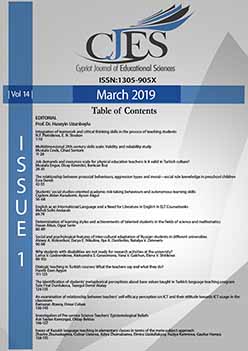The identification of students' metaphorical perceptions about base values taught in Turkish language teaching program
The identification of students' metaphorical perceptions about base values taught in Turkish language teaching program
Author(s): Sule Firat Durdukoca, Tazegul Demir AtalaySubject(s): Education, School education, Turkic languages
Published by: Birlesik Dunya Yenilik Arastirma ve Yayincilik Merkezi
Keywords: Value education; metaphor; secondary school education curriculum; Turkish language curriculum;
Summary/Abstract: The aim of this study is to define the metaphorical perceptions of secondary school students about basic values, such as justice, friendship, honesty, self-control, patience, respect, love, responsibility, patriotism and benevolence taught, in Turkish curriculum. The study used phenomenological design, and the study group consisted of a total of 114 secondary school students in seventh grade at a public school in Kars, Turkey. In the questionnaire, students were asked to convert their perceptions of the above-mentioned values into the following statement. ‘....value is like...../because.....’. The study results revealed that nearly 70% of the participants created metaphors related to base values, and the most frequent metaphor was‘brotherhood’ that was created for the base value ‘friendship’. Also, it was found that one of the conceptual categories formed for ‘friendship’ was the only category that all the metaphors created by the participants were negative.
Journal: Kıbrıslı Eğitim Bilimleri Dergisi
- Issue Year: 14/2019
- Issue No: 1
- Page Range: 124-135
- Page Count: 12
- Language: English

